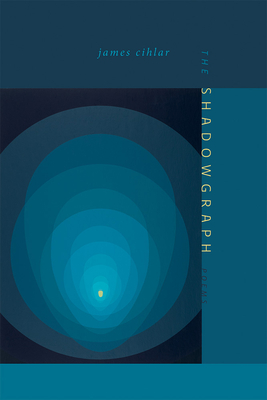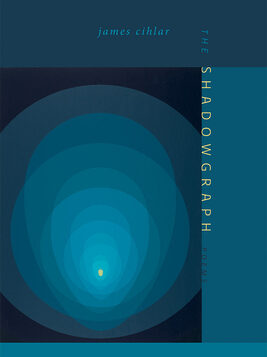 The Shadowgraph
The Shadowgraph
by James Cihlar
University of New Mexico Press. 73 pages, $18.95
JAMES CIHLAR’S POEMS in this volume traffic in something of a stereotype: gay men’s obsession with old movies, especially female screen legends of Hollywood’s Golden Age. They do so with great verve and intelligence, however, and a welcome lack of camp or cant. The particular object of Cihlar’s devotion in The Shadowgraph is the indomitable Barbara Stanwyck, star of more than 85 movies.
It’s easy to see why gay men identify with Stanwyck heroines who bristle at and are stifled by the ho-hum middle-class pieties of postwar suburban America (Crime of Passion, Clash By Night, among others). She straddles social norms, embodying dualities that are familiar to many gay men, especially older ones.
Like any devotee, Cihlar is acutely attuned to learning about and from his subject. These sturdy, artful poems—mostly about a page long, often composed in couplets or three-line stanzas—appear traditional on the page, but they are not afraid to point a loaded pistol at convention.
The first half of The Shadowgraph centers on a dysfunctional Iowa childhood. The poet’s mother shows up in this great two-line opening: “If my mother did not believe in the food pyramid,/ orthodontia, and sobriety, she believed in Christmas.” These poems have chunks of John Ashbery-like inscrutability and pinches of the movie-crazed Frank O’Hara, only flavored with a Midwestern vernacular. Each line of “Another Man’s Poison” is one sentence long, by turns aphoristic and absurd, ending in “A pretty question deserves an ugly answer.”
The second and more engaging half of the book consists of poems under titles of movies starring Stanwyck. Wonderfully witty as viewing companions, they function on other levels, too. “Night Nurse” is less about that pre-code melodrama than Stanwyck’s relations with her estranged son Dion. Other poems reel in details about Marwyck, the ranch Stanwyck built in the 1930s; about the star’s marriage to actor Robert Taylor; about the indignity of aging; and about the movie star’s conservative politics. From “Walk on the Wild Side”: “After the war, when McCarthy rose to power,/ I played along in his rank attempt to kill the New Deal,/ To rout FDR’s liberal intellectuals and gays./ I sent Bob to testify. He was the first star to name names.”
Employing first-, second-, and third-person pronouns, Cihlar twines intriguingly into and out of the movies, probing them for pathos and comedy, opposites and doubles, as in “There’s Always Tomorrow”: “The son doesn’t care about him until he’s discovered in the desert,/ laughing with Barbara Stanwyck in the bungalow of lust./ For that, he gets a pompadoured sneer,/ a toy robot walking off the edge of a table,/ a single plane flying over the broken L of California.”
Cihlar convinces us that we want our screen idols to bestow us with emotional takeaways, however fleeting or mysterious, as in “No Man of Her Own”: “Even if she found it now/ what we know/ and can remember is the feeling/ of being lost, of missing/ something, so that even/ after it’s found, we keep looking.” It’s fun when Cihlar unleashes his unguarded fanboy, as in “The Furies”: “When Stanwyck casts aside pearls/ for diamonds, it changes the air/ in the theater. When she rides her horse/ to the squatter’s fort/ and warns her Mexican lover,/ she wrings the neck of eloquence.”
Pop culture meets pathos in The Shadowgraph, a stirring pæan to movie idols who flicker across the screen and sometimes show up in the mirror.






